The use of hunting dogs in England is a significant part of the nation's cultural heritage, with these dogs being key companions in hunting for centuries. Their development is closely tied to England's varied landscapes and the different game found within, leading to specialized breeds like pointers, setters, flushers, retrievers, and hounds, each fulfilling a specific role in hunting. Despite modern changes in hunting and conservation, these breeds remain valued for their versatility, extending into roles beyond hunting to companionship and competitive sports, reflecting their enduring legacy.
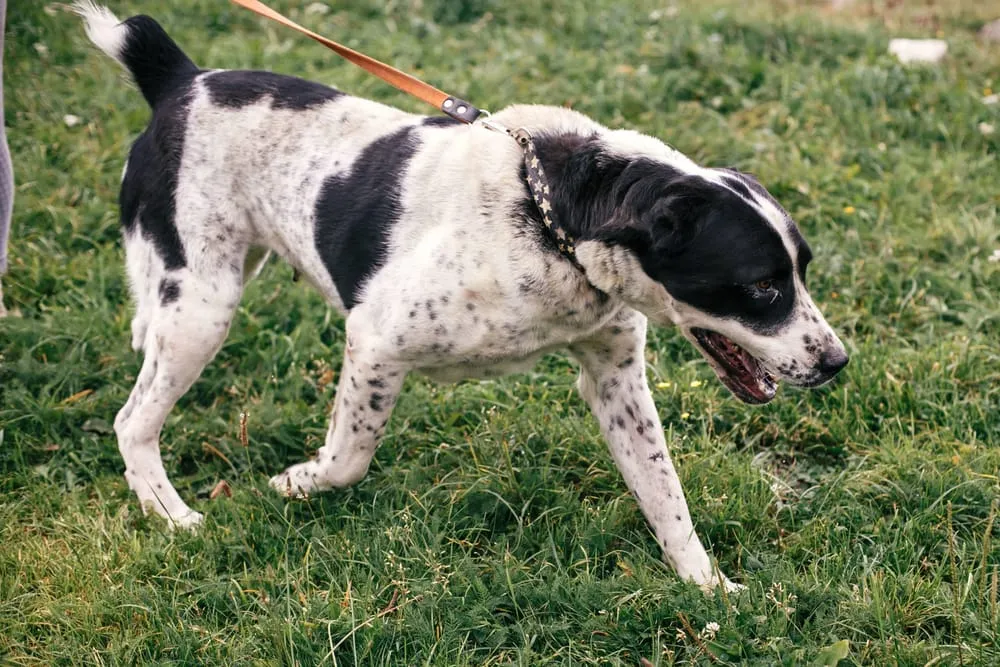
| Category | Role in Hunting | Characteristics | Example Breeds |
|---|---|---|---|
| Pointers and Setters | Locate and indicate game | Keen sense of smell, iconic pointing or setting stance | English Pointer, English Setter |
| Flushers | Drive game out of hiding | Vigorous energy, works closely with hunters | English Springer Spaniel, Cocker Spaniel |
| Retrievers | Fetch game after it has been downed | 'Soft mouth', good swimmers, obedient | Labrador Retriever, Golden Retriever |
| Hounds | Track and pursue game | Powerful sense of smell or great speed, stamina | Foxhound, Beagle |
Understanding Hunting Dog Categories
In the realm of hunting, dogs are categorized based on their specific skills and roles during the hunt. These categories—pointers, flushers, retrievers, and hounds—each play a unique and crucial role that complements the hunter's needs, enhancing the efficiency and success of the hunt. Understanding these categories provides insight into how each type of dog contributes to various hunting scenarios.
Pointers
Pointers are bred for their ability to locate game by scent and then 'point' towards it, remaining still to indicate the game's position to the hunter. This behavior is invaluable in bird hunting, where the game might be hidden in tall grasses or thickets. The pointer's stance, with its body tense and one paw lifted, signals the hunter to move into position for the flush. English Pointers and Setters are prime examples of this category, celebrated for their keen noses and unwavering pointing stance.
Flushers
Flushers, including breeds like the English Springer Spaniel and Cocker Spaniel, are adept at rousing game from dense cover, forcing birds or small mammals to take flight or move into the open. This action allows the hunter a clear shot. Flushers work closely with the hunters, often within gunshot range, and are known for their vigorous energy and persistence. Their ability to work under dense cover and respond to commands makes them indispensable for upland game hunting.
Retrievers
Retrievers are trained to fetch game once it has been downed, bringing it back to the hunter without causing further damage to the game. Breeds like the Labrador Retriever and Golden Retriever excel in this role, showcasing a 'soft mouth' that holds the game gently. Their skill set is particularly valuable in waterfowl hunting, where they retrieve game from water bodies. Retrievers are also known for their obedience, making them reliable partners in the field and at home.
Hounds
Hounds are divided into two main types: scent hounds and sight hounds. Scent hounds, such as the Foxhound and Beagle, use their powerful noses to track game over long distances, often following a scent trail with remarkable persistence. Sight hounds, on the other hand, rely on their acute vision and speed to spot and chase down game. Hounds are typically used for hunting larger game and are valued for their stamina and determination.
Each category of hunting dog fulfills a specific role that aligns with the hunter's strategy and the type of game being pursued. Whether pointing to the hidden game, flushing it into view, retrieving it post-capture, or tracking it over vast distances, these dogs are specialized companions that enhance the hunting experience through their skills, obedience, and companionship. Their roles in hunting not only showcase their physical abilities and instincts but also reflect centuries of selective breeding and training to perfect these traits.
Iconic English Pointers and Setters
English Pointer
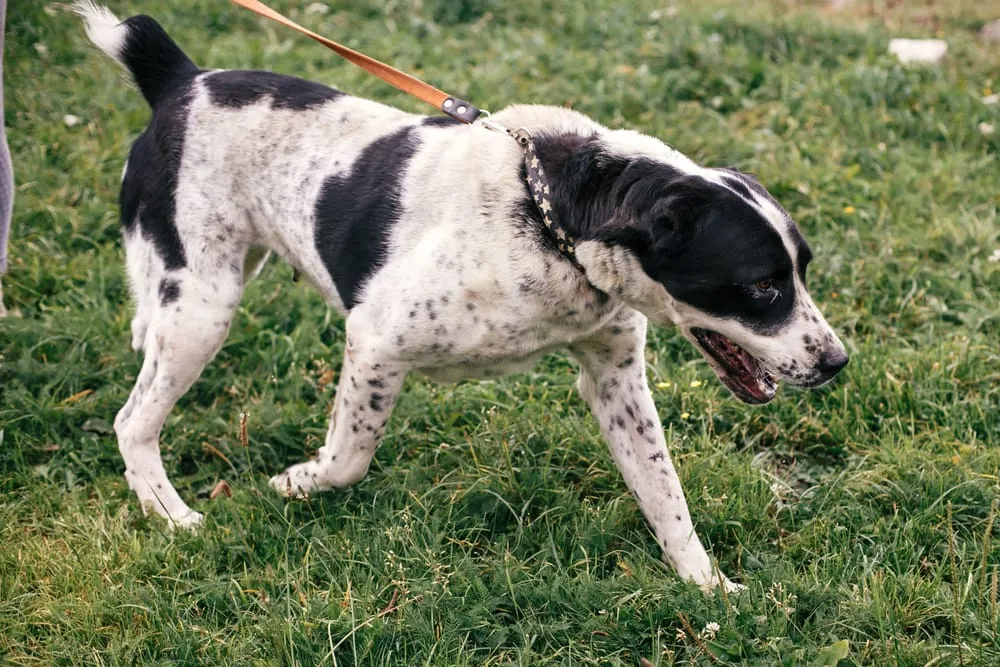
The English Pointer, often simply called the Pointer, is a breed celebrated for its grace, athleticism, and extraordinary hunting abilities, particularly in bird hunting. Characterized by a muscular yet elegant build, a distinctively shaped head with a long muzzle, and a keen, alert expression, Pointers are built for endurance and speed across diverse terrains.
Characteristics: Pointers possess a short, dense coat that can come in several color patterns. Their agile bodies enable them to move swiftly and with purpose, covering large areas with ease. They are known for their good temperament, showing a mix of strength, kindness, and even-temperedness.
Hunting Style: The Pointer's hunting style is marked by its exceptional sense of smell and its iconic 'pointing' stance—standing still with one foreleg lifted and its nose pointing towards the game. This behavior alerts the hunter to the presence of game without startling it into flight prematurely.
Ideal for Bird Hunting: Pointers are particularly valued in bird hunting for their ability to locate and silently indicate the position of birds. Their energy and determination allow them to work for extended periods, making them ideal for hunting in open fields where birds might be scattered over large areas. Their 'pointing' ability ensures that the hunter can approach and flush the game at the optimal moment, increasing the chances of a successful hunt.
English Setter
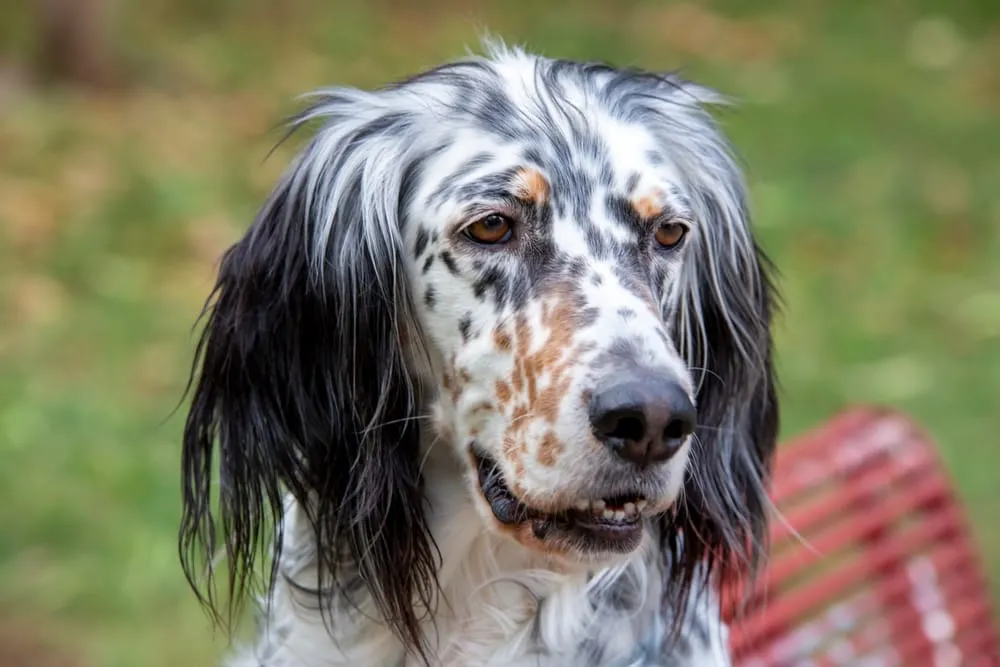
The English Setter is another esteemed breed in the category of pointers, known for its unique appearance and proficient hunting capabilities. With their long, flowing coats and gentle, friendly expressions, English Setters are not only beautiful but also highly skilled in the field.
Description: English Setters are medium-sized dogs with a unique speckled coat, often in a combination of white with black, lemon, orange, or liver. They have a graceful build and a gentle demeanor, with feathering on their ears, chest, abdomen, and the backs of their legs.
Hunting Capabilities: Like the Pointer, English Setters are excellent at locating game, particularly birds. They use their keen sense of smell to find game and then 'set'—a crouching form of pointing that was more common before the development of firearms in hunting. This posture signals to the hunter the location of the game without disturbing it.
Method of Locating and Pointing Toward Game: English Setters methodically cover ground, using their noses to detect the scent of birds. Once they catch the scent, they move towards it slowly and stealthily until they are close enough to confirm the game's presence. Then, they adopt the 'set' position, lowering their body close to the ground, which serves as a signal to the hunter. Their ability to work quietly and efficiently, combined with their elegant 'setting' behavior, makes them invaluable companions for bird hunting, particularly in dense cover or mixed terrain where stealth and precision are paramount.
Both the English Pointer and the English Setter epitomize the qualities of iconic English hunting breeds, combining elegance, skill, and a deep-rooted instinct for the hunt. Their specialized abilities in pointing toward game have made them cherished partners in bird hunting, continuing a long tradition of field sports in England.
Renowned English Flushers
English Springer Spaniel
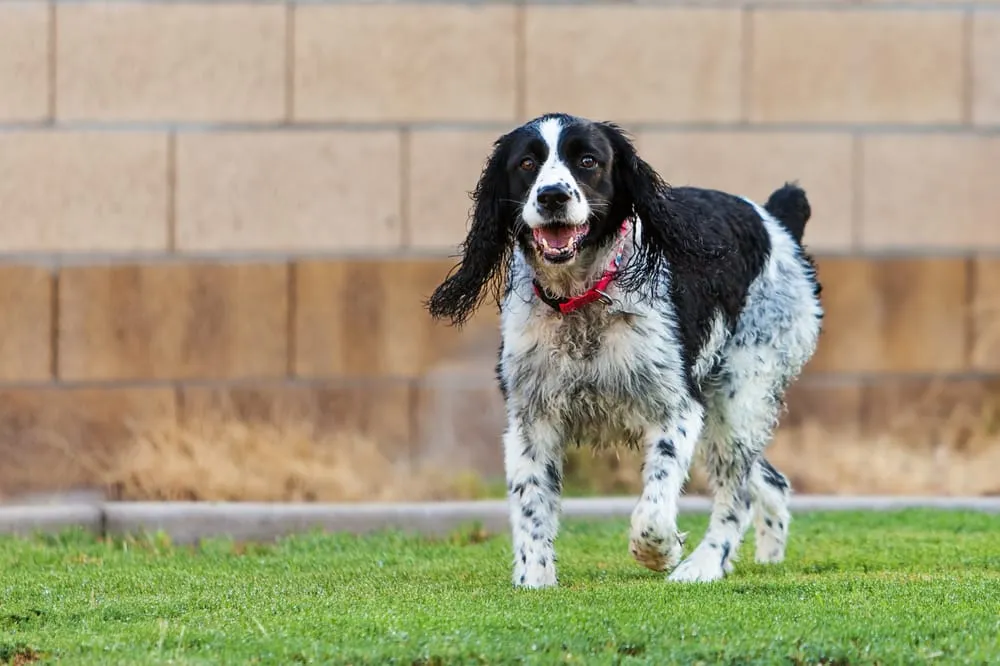
The English Springer Spaniel stands out as a versatile and energetic hunting dog, renowned for its proficiency in flushing game from dense cover. This breed's name, "Springer," comes from its ability to spring or flush game, making it visible for the hunter.
Overview: English Springer Spaniels are medium-sized dogs characterized by their balanced build, long ears, and expressive eyes. Their coat, which can be either liver and white or black and white, is moderately long and waterproof, providing protection in various terrains. They are known for their friendly and eager-to-please nature, making them not only excellent hunting dogs but also beloved family pets.
Flushing Skills: Springer Spaniels excel in flushing game, particularly birds, from their hiding spots. They work closely with the hunter, using their keen sense of smell to locate game in thick underbrush and then energetically flushing it out into the open. Their biddable nature and responsiveness to commands make them highly effective in coordinated hunting efforts.
Versatility in Hunting: One of the most notable traits of the English Springer Spaniel is its versatility. These dogs are adept at working in a variety of environments, from dry land to wetlands. Their strong swimming abilities make them equally efficient in retrieving game from water, a trait that sets them apart from many other flushing breeds.
Cocker Spaniel
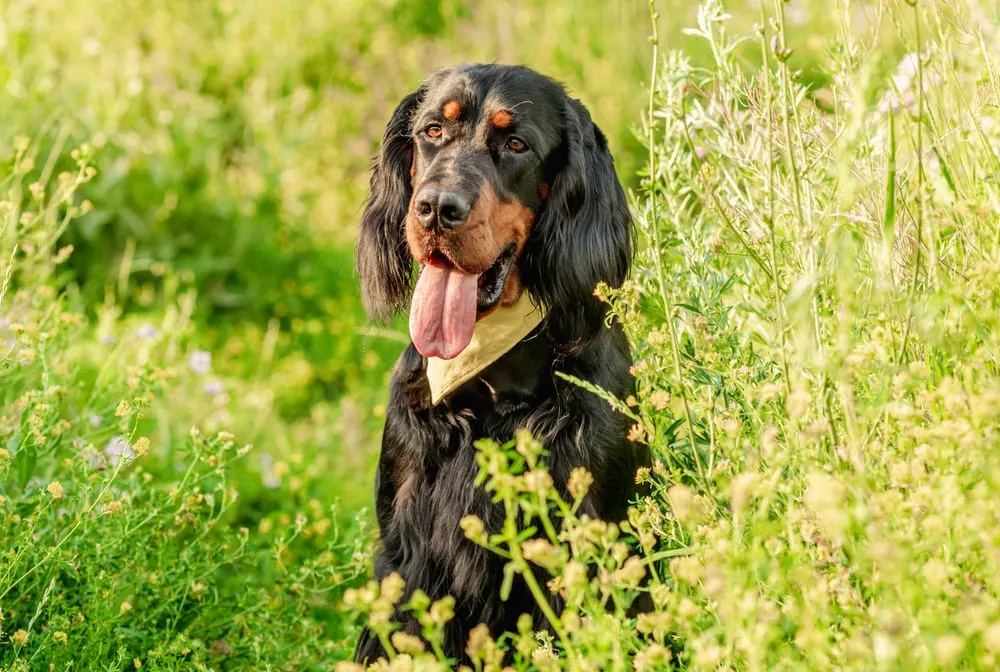
Cocker Spaniels, smaller than their Springer counterparts, are equally renowned in the flushing category. Their compact size and boundless energy make them particularly effective in dense cover where larger dogs might struggle.
Traits: Cocker Spaniels are known for their soft, expressive eyes and their silky, feathered coat, which comes in a variety of colors. They possess a joyful and affectionate demeanor, making them endearing companions. Despite their smaller stature, they are sturdy and robust, with a strong hunting instinct.
Effectiveness in Flushing Game: Cockers are exceptional at flushing game, using their agility and enthusiasm to navigate through thick vegetation. Their method involves working closely with the hunter, covering ground efficiently, and using their keen nose to detect game. Once located, they flush the game with vigor, ensuring it takes flight or moves into the hunter's line of sight.
Adaptability to Different Terrains: Cocker Spaniels are notable for their adaptability, capable of working in a variety of settings from dense forests to open fields. Their compact size allows them to move through underbrush with ease, making them particularly effective in thickly vegetated areas. This adaptability, combined with their cheerful disposition, makes them a favorite among hunters seeking a versatile and manageable flushing dog.
Both the English Springer Spaniel and the Cocker Spaniel embody the essence of renowned English flushers, with their exceptional skills in flushing game and their adaptability to diverse hunting conditions. Their energy, agility, and innate hunting abilities make them indispensable companions in the field, upholding the rich tradition of flushing breeds in English hunting.
Esteemed English Retrievers
Labrador Retriever
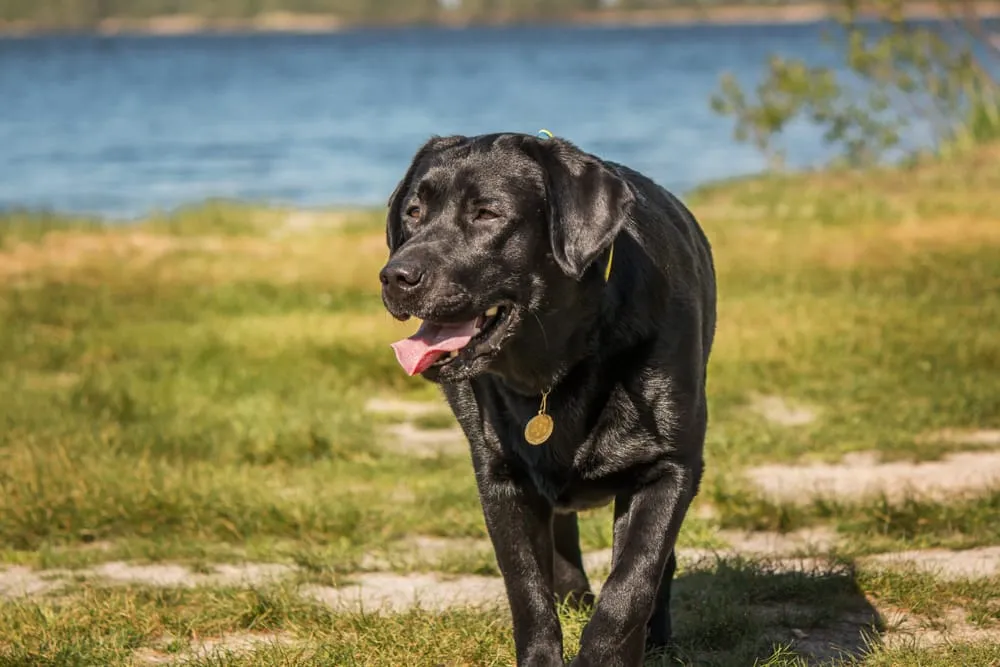
Though the Labrador Retriever's origins trace back to Newfoundland, Canada, it has become one of the most esteemed breeds in England and globally, particularly for its retrieving skills. Bred from St. John's water dogs, Labradors were refined in the UK to excel as both hunting companions and family pets.
Origin: The breed was honed by English nobility in the 19th century, who valued the dogs for their exceptional ability to retrieve game in harsh weather conditions and challenging terrains, particularly in water. Their dense, water-resistant coats and otter-like tails make them natural swimmers.
Skills in Retrieving Game: Labradors are celebrated for their "soft mouth," allowing them to retrieve game gently without causing damage. Their skills are not limited to land; they are remarkable swimmers, making them unparalleled in waterfowl retrieval. Their keen sense of smell and intelligence also contribute to their proficiency in tracking and retrieving downed game across various terrains.
Golden Retriever
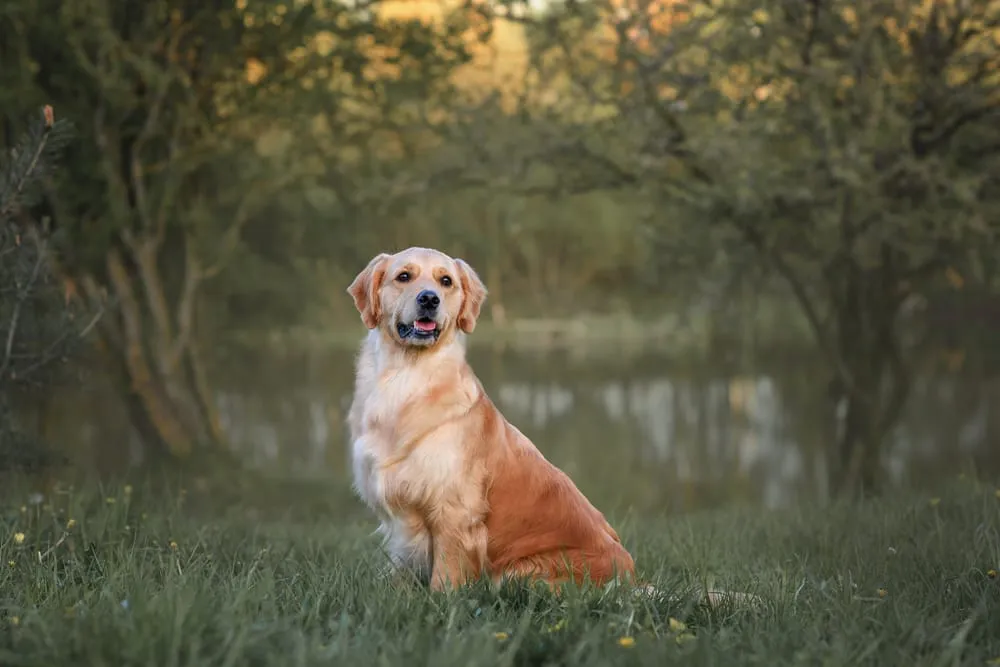
The Golden Retriever, with its roots in the Scottish Highlands, has been embraced by English hunters and families alike for its versatile hunting abilities and amiable nature. Developed by Sir Dudley Marjoribanks (Lord Tweedmouth) in the late 19th century, the breed was intended to be adept at retrieving game from both land and water.
Background: Initially bred from a mix of the now-extinct Yellow Retriever, Tweed Water Spaniel, and other breeds, the Golden Retriever was designed to navigate the rugged Scottish terrain and water bodies, retrieving game that had been shot down.
Gentle Mouth for Game Retrieval: Golden Retrievers are renowned for their gentle grip, a trait essential for retrieving game without inflicting any additional harm. This soft mouth, combined with their natural retrieving instinct, makes them highly effective in the field.
Obedience: Beyond their physical abilities, Golden Retrievers are known for their intelligence and eagerness to please, making them highly trainable. This obedience translates well into the hunting field, where a responsive and controllable dog is invaluable. Their amiable disposition also makes them excellent family pets, capable of transitioning from a day in the field to a peaceful evening at home with ease.
Both the Labrador and Golden Retriever stand as esteemed members of the retriever category in English hunting traditions. Their unparalleled retrieving skills, especially in aquatic environments, combined with their obedient and gentle nature, make them indispensable companions for hunters and cherished members of the family.
Famous English Hound Breeds
Foxhound
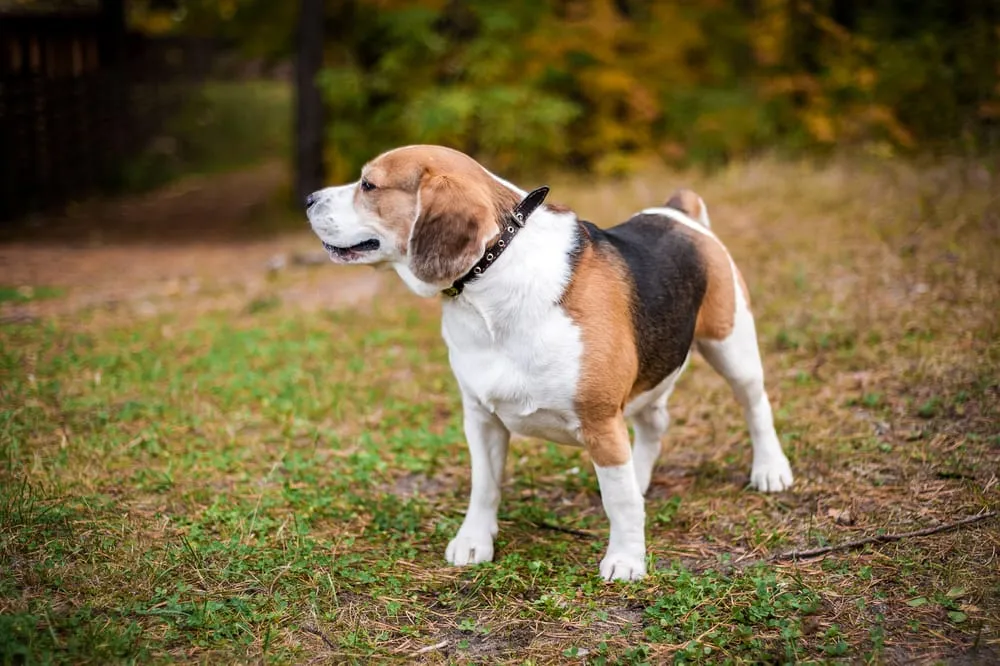
The Foxhound is an iconic breed in the English hunting tradition, primarily known for its central role in the sport of fox hunting. Bred for stamina, speed, and a keen sense of smell, Foxhounds are the epitome of endurance and determination in the pursuit of their quarry.
Role in Traditional Fox Hunting: Foxhounds are the backbone of traditional English fox hunts, which involve a pack of hounds led by a hunt master, following the scent trail of a fox across the countryside. Their loud, melodious baying is distinctive, serving both to communicate with the pack and to signal hunters.
Stamina: One of the Foxhound's most notable traits is its incredible stamina. These dogs are capable of maintaining a steady pace over long distances, essential for the prolonged chases typical of fox hunting. Their muscular build and powerful legs contribute to their endurance and agility.
Tracking Abilities: Foxhounds possess an exceptional ability to follow scent trails, even over challenging terrain and through varying weather conditions. Their acute sense of smell, combined with their determination, makes them relentless trackers, unwavering in their pursuit until the hunt concludes.
Beagle
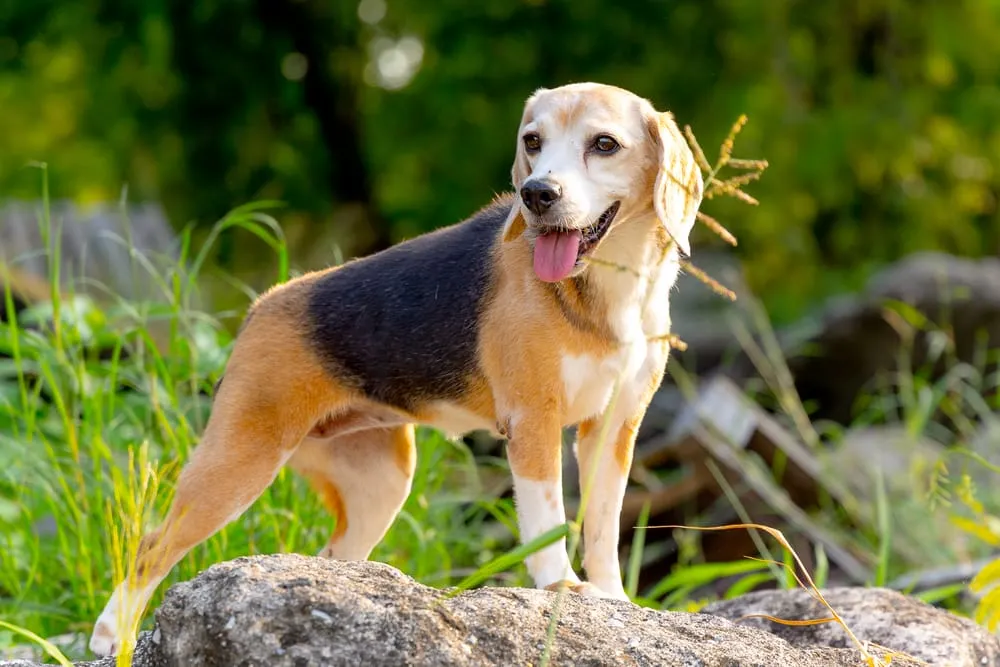
The Beagle, smaller in stature but no less renowned, is another quintessentially English breed, valued for its remarkable scent-tracking expertise. Beagles are particularly well-suited for small game hunting, such as rabbits, thanks to their size and olfactory prowess.
Size: Beagles are compact and agile, allowing them to navigate through dense underbrush and other tight spaces where rabbits and other small game tend to hide. Their smaller size makes them ideal for hunters who need a dog that can follow game into areas that larger breeds cannot.
Scent-Tracking Expertise: Beagles are among the best scent hounds, with a highly developed sense of smell and a natural instinct for tracking. They are known for their persistence and tenacity in following a trail, often vocalizing with a distinctive howl or bark as they track, keeping the hunter informed of their progress.
Suitability for Rabbit Hunting: Beagles excel in rabbit hunting, using their keen noses to locate and then pursue rabbits, often working in packs to flush out and chase down the game. Their enthusiastic and energetic hunting style, combined with their ability to work closely with both human hunters and other dogs, makes them a popular choice for this type of hunting.
Both the Foxhound and the Beagle embody the rich heritage of English hound breeds, each with its specialized hunting skills honed through centuries of breeding and tradition. Their roles in traditional hunting practices highlight the deep connection between the hunter, the hound, and the English countryside.
Training and Care for Hunting Dog Breeds
Training and caring for hunting dog breeds involve a comprehensive approach that not only hones their natural hunting instincts but also ensures their physical and mental well-being. Proper training and care are essential for these dogs to perform optimally in the field and lead balanced, healthy lives.
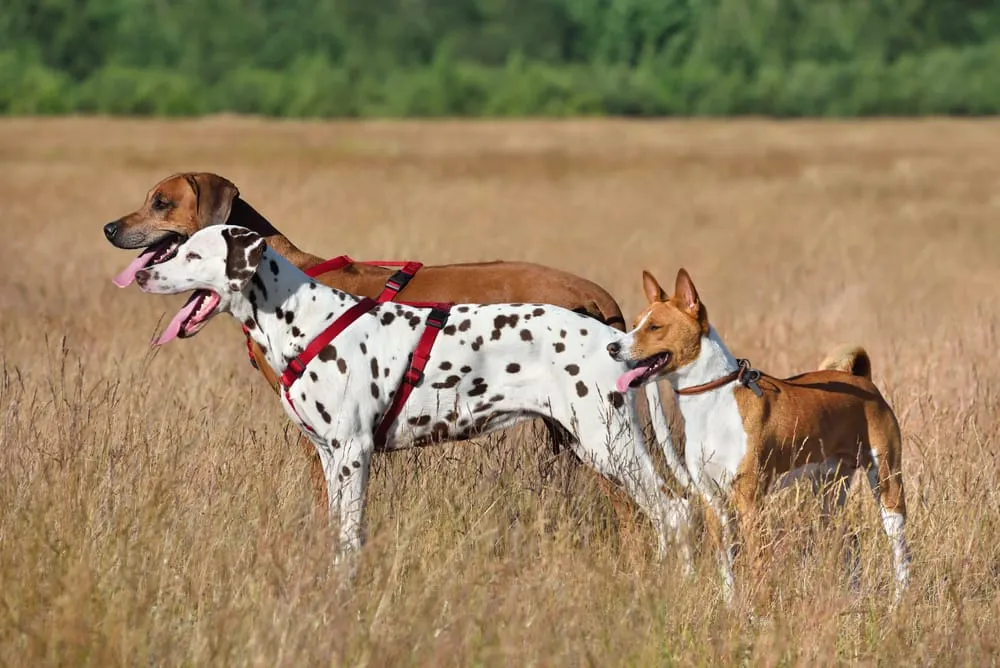
Training Hunting Dogs
Start Early: Begin training your hunting dog at a young age to capitalize on their eagerness to learn and adaptability. Early training lays the foundation for more specialized training later on.
Use Positive Reinforcement: Encourage and reward desired behaviors with treats, praise, or playtime. Positive reinforcement strengthens the bond between you and your dog and makes training a more enjoyable experience for both.
Harness Natural Instincts: Identify and nurture your dog's innate abilities. For example, train pointers to recognize and point to game, or teach retrievers the art of gently carrying objects in their mouths. Tailoring training to your dog's natural inclinations can lead to more effective learning.
Consistency is Key: Maintain consistency in commands, routines, and expectations. Consistent training helps your dog understand what is expected of them, leading to better compliance and performance.
Simulate Hunting Scenarios: As your dog advances in their training, introduce them to environments and situations that mimic real hunting experiences. This can include exposure to game scents, gunshot sounds, and working in terrain similar to where they will be hunting.
Caring for Hunting Dog Breeds
Regular Exercise: Hunting dogs are typically high-energy breeds that require ample physical activity. Regular exercise is crucial for maintaining their physical health and managing their energy levels.
Mental Stimulation: In addition to physical exercise, hunting dogs need mental challenges to keep them engaged. Puzzle toys, obedience training, and interactive games can help keep their minds sharp.
Proper Nutrition: A balanced diet tailored to their age, size, and activity level is essential for maintaining their health and energy. Consult with a veterinarian to determine the best diet plan for your hunting dog.
Healthcare and Check-ups: Regular veterinary check-ups, vaccinations, and preventative care are vital to address any health concerns promptly. Pay special attention to their ears, paws, and coat, especially after fieldwork, to prevent infections or injuries.
Rest and Recovery: After rigorous training sessions or hunting expeditions, ensure your dog has a comfortable space to rest and recover. Adequate rest is as important as exercise in maintaining your dog's health and readiness for the next adventure.
Training and caring for hunting dog breeds is a rewarding responsibility that requires dedication, patience, and a deep understanding of the breed's needs. By focusing on their training, physical health, and mental well-being, you can nurture a skilled hunting companion who is also a well-adjusted, happy member of your family.
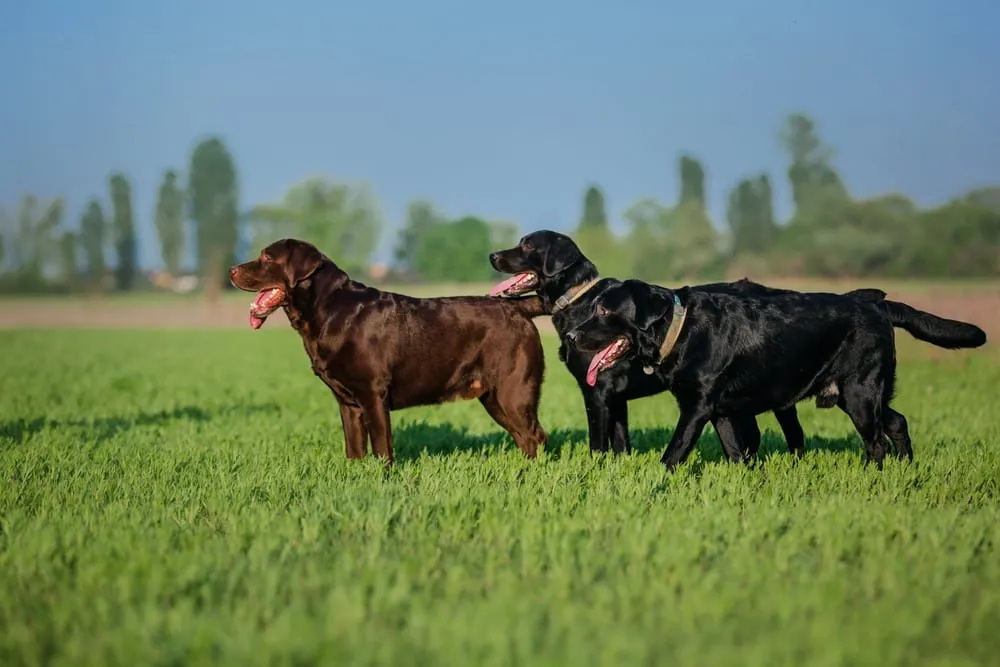
Choosing the Right Breed for Your Hunting Needs
Choosing the right breed for your hunting needs is a crucial decision that can significantly impact the success and enjoyment of your hunting endeavors. Various factors should be considered to ensure that the dog's capabilities align with your specific requirements. Here are some key considerations to help you select the most suitable hunting dog breed:
Type of Game
Different breeds excel in hunting specific types of game. For instance:
- If you're interested in bird hunting, breeds like English Setters, Pointers, and Spaniels are known for their exceptional bird-finding and retrieving abilities.
- For waterfowl hunting, consider retrievers like Labradors or Golden Retrievers, which are adept at working in water and have a gentle mouth for retrieving game.
- Hunters pursuing larger game or those needing tracking assistance might benefit from hounds like Beagles or Foxhounds, renowned for their tracking and stamina.
Hunting Terrain
The environment in which you plan to hunt plays a significant role in selecting the right breed:
- Dense forests and underbrush require a dog that can maneuver through thickets with ease, making smaller, agile breeds like Cocker Spaniels suitable.
- Open fields and plains call for dogs with good stamina and speed, such as Pointers, to cover large areas effectively.
- For marshy or aquatic environments, breeds with water-resistant coats and strong swimming abilities, such as Labrador Retrievers, are ideal.
Hunter's Experience Level
Your experience with training and handling dogs should also influence your choice:
- Novice hunters might prefer breeds known for their trainability and willingness to please, such as Golden Retrievers and Labradors, which are easier to train and handle.
- Experienced hunters may opt for breeds that require more nuanced training or have strong hunting instincts, such as English Setters or Springer Spaniels.
Size and Living Conditions
Consider the size of the dog and your living conditions:
- Larger breeds may require more space and exercise, making them better suited for hunters with ample outdoor space.
- Smaller breeds might be more adaptable to various living conditions, including smaller homes or apartments, provided they get enough exercise.
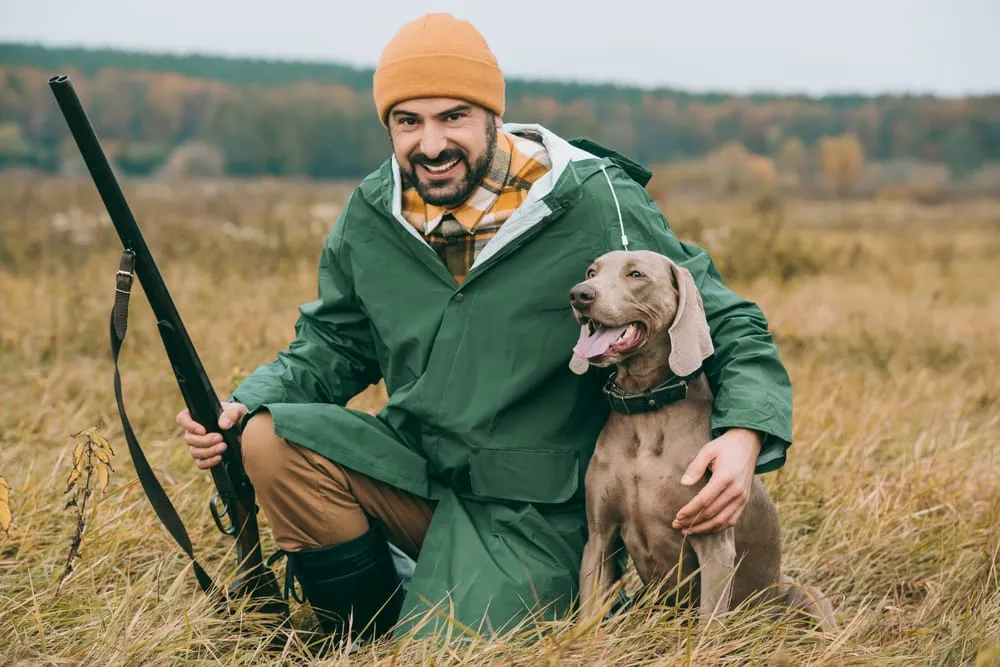
Temperament and Companionship
Beyond hunting capabilities, think about the dog's temperament and its role as a companion:
- Breeds like Beagles and Cockers have friendly dispositions, making them great family pets in addition to hunting partners.
- Some breeds may have a more independent nature, suited for hunters who prefer a more hands-off companionship.
By carefully considering these factors, you can choose a hunting dog breed that not only enhances your hunting experience but also fits well into your lifestyle and becomes a valued companion.
Conservation and Ethical Hunting Practices
Hunting dogs play a pivotal role in sustainable hunting and wildlife management by aiding in the selective and efficient pursuit of game, thereby contributing to conservation efforts. Their skills in tracking and retrieving ensure that hunting is conducted responsibly, with minimal waste and disturbance to ecosystems. Ethical hunting practices emphasize respect for wildlife, adherence to regulations, and the use of hunting dogs to ensure quick and humane outcomes. Promoting a respectful approach to hunting involves educating hunters on the importance of conservation, the ethical treatment of dogs, and the stewardship of natural habitats to preserve wildlife populations for future generations.
Conclusion
In conclusion, English hunting dog breeds embody a remarkable blend of history, skill, and versatility that has been honed through centuries of careful breeding and training. From the steadfast pointers and setters to the agile flushers, the diligent retrievers, and the persistent hounds, each breed brings its unique qualities to the hunting field. Their diverse capabilities not only make them invaluable partners in various hunting scenarios but also highlight their adaptability and intelligence.
As we reflect on the rich heritage and specialized skills of these breeds, it's essential to appreciate the deep connection between these dogs, their handlers, and the natural landscapes they traverse. Whether employed in their traditional roles in hunting or cherished as loyal companions, English hunting dog breeds offer a living link to a storied past and a testament to the enduring bond between humans and dogs.
Let us celebrate and preserve the legacy of these magnificent breeds, recognizing their contributions not just to the sport of hunting but also to our lives as devoted friends and family members. Their history, skill, and companionship enrich our experiences and remind us of the profound respect and admiration we owe to these remarkable animals.
FAQs
- What are the main categories of English hunting dogs?
- English hunting dogs are typically categorized into pointers and setters, flushers, retrievers, and hounds, each with specific roles such as locating game, flushing it out, retrieving it, or tracking it over distances.
- Can English hunting dogs be good family pets?
- Yes, many English hunting dog breeds are also excellent family pets, known for their loyalty, intelligence, and affectionate nature. Breeds like the Labrador Retriever and Golden Retriever are particularly well-regarded for their compatibility with family life.
- What factors should I consider when choosing an English hunting dog?
- Consider the type of game you intend to hunt, the terrain you'll be hunting in, your experience level with dogs, the dog's size and living conditions, and the breed's temperament and compatibility as a companion.
- Are English hunting dogs suitable for novice hunters?
- Certain breeds, known for their trainability and eagerness to please, such as Labradors and Golden Retrievers, can be more suitable for novice hunters. However, selecting a breed that matches your hunting style and committing to proper training are crucial for any hunter.
- How do hunting dogs contribute to wildlife conservation?
- Hunting dogs aid in sustainable hunting practices by ensuring efficient and selective pursuit of game, contributing to wildlife management efforts, and helping to maintain ecological balance.
- What is the role of ethical practices in hunting with dogs?
- Ethical hunting practices involve respecting wildlife, adhering to hunting regulations, ensuring the humane treatment of the game, and caring for the well-being of the hunting dogs. These practices promote conservation and sustainability in hunting.
- Can English hunting dog breeds adapt to non-hunting environments?
- Yes, many English hunting dog breeds can adapt well to non-hunting environments, provided they receive adequate exercise, mental stimulation, and social interaction to meet their needs.
- What is the historical significance of English hunting dogs?
- English hunting dogs have a rich history intertwined with the cultural heritage of hunting in England. They have been bred over centuries for specific hunting roles, reflecting the tradition and evolution of field sports in the country.




